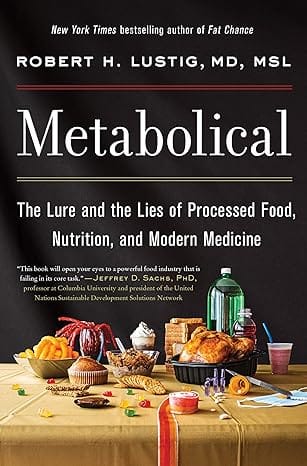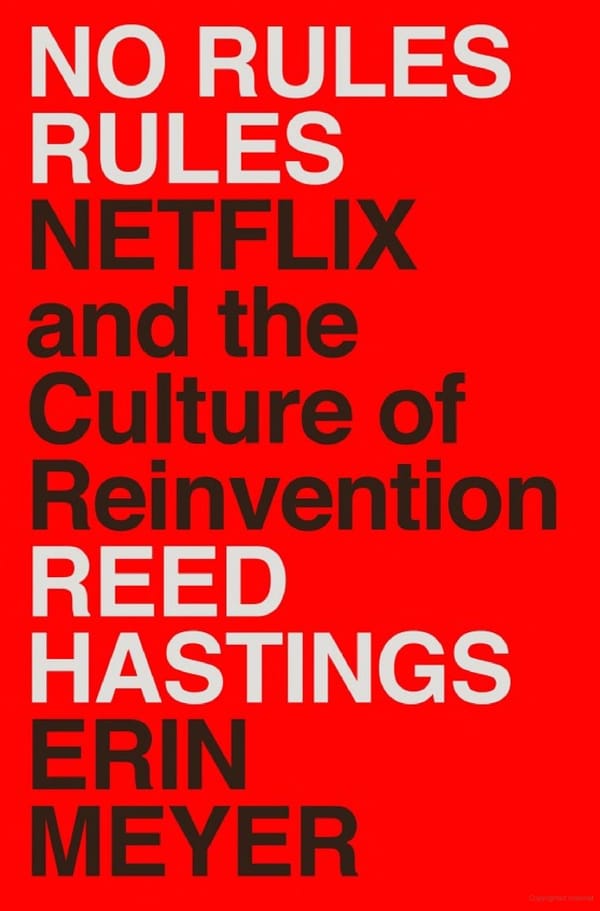Values: How Will You Measure Your Life?
Neglecting your values can lead to many of life's most destructive traps, especially for the outwardly successful. Clayton Christensen helps us think about what matters.

When we find ourselves stuck in unhappy careers—and even unhappy lives—it is often the result of a fundamental misunderstanding of what really motivates us.
Clayton Christensen (of Innovator’s Dilemma fame) asks us how to think about our values in How Will You Measure Your Life. It’s short, packed with nice theories about how to organize your life. It’s not proscriptive. It gives you a framework for thinking about life’s most important questions. If it forces you to grapple with those questions, that alone is worth the read.
As a long term HBS professor, Christensen has had plenty of students who rose to the top of their fields in the corporate world. Many of them led miserable lives. They had good intentions, skills, work ethic, and every other conceivable advantage on paper. It’s worth understanding so that you don’t make the same mistake yourself. Being deliberate and thoughtful about where you spend your time and energy can help avoid ruin.
I first heard about this 2012 book from this podcast, with the quote from Ravi Gupta (former CFO/COO of Instacart, Partner at Sequoia):
His thesis is people don't live the lives they want for the same reason that companies fail, which is that they focus on the short-term, the expense of the long-term. They don't actually have their long-term goal in mind, and as a result, they just do the thing in front of them instead. So that book, I would say the first thing that happened was I'd never asked myself the question of, how will you measure your life? It's a hokey question, but I don't know, seems pretty important to think about, what will you look back on and say made you successful or happy, or whatever?
…
He brings up this example, you can stay at work at 6:30 and you can show tangible progress for your next 45 minutes because maybe you close a sale, or maybe you have a conversation. You can see some benefit of what you're doing. If you go home, maybe you go do bath time, and bath time is chaos. Bath time, you don't see any tangible benefit of going. But the sale that you do from 6:30 to 7:15, yeah, sure, it's tangible, but 20 years from now, you're not going to give a shit. Whereas, if you did bath time every night, your kids are going to remember and you're going to remember, right? It's going to be the thing that you look back on.
I have a particular interest where people who seem to have succeeded have regret. There’s a lesson there. You need to do the work to adapt it to your life. You need to invest in understanding the principles before you make those mistakes:
People often think that the best way to predict the future is by collecting as much data as possible before making a decision. But this is like driving a car looking only at the rearview mirror—because data is only available about the past.
Finding happiness in your career
Do you understand what motivates you?
Christensen subscribes to a 2 factor theory of motivation, referring to hygiene factors as distinct from motivational factors. I will admit that early in my career I was absolutely over-indexed on hygiene factors.
On one side of the equation, there are the elements of work that, if not done right, will cause us to be dissatisfied. These are called hygiene factors. Hygiene factors are things like status, compensation, job security, work conditions, company policies, and supervisory practices.
Motivation factors include challenging work, recognition, responsibility, and personal growth. Feelings that you are making a meaningful contribution to work arise from intrinsic conditions of the work itself. Motivation is much less about external prodding or stimulation, and much more about what’s inside of you, and inside of your work.
You need both factors to be in a good position to be happy in the long run. The most common mistake that people make is to overly emphasize hygiene factors (compensation, the next promotion, raise, company policies, etc). And then in pursuing this they fall into a trap of buying expensive things to counter the unhappiness. Instead, you should be asking yourself the following questions:
- Is this work meaningful to me? Will I have a chance to do great work?
- Is this job going to give me a chance to develop? Am I going to learn new things?
- Will I have an opportunity for recognition and achievement? Am I going to be given responsibility?
So how do you find work that does this? There are two types of strategies: deliberate and emergent. A deliberate strategy is a directed one where you have planned out all of the steps. An emergent one is where you are responsive to opportunities that arise. In reality, you should probably do a mix of the two–by staying upwind:
Once you understand the concept of emergent and deliberate strategy, you’ll know that if you’ve yet to find something that really works in your career, expecting to have a clear vision of where your life will take you is just wasting time. Even worse, it may actually close your mind to unexpected opportunities. While you are still figuring out your career, you should keep the aperture of your life wide open.
Christensen offers this advice when putting career decisions in practice.
Before you take a job, carefully list what things others are going to need to do or to deliver in order for you to successfully achieve what you hope to do. Ask yourself: “What are the assumptions that have to prove true in order for me to be able to succeed in this assignment?” List them. Are they within your control?
Your actual strategy is where you spend your time (and resources). If you never learn to say no, you will not be able to be strategic about where you spend your time. But it gets incredibly important to do so to drive meaning in your career. Don’t make the mistake of focusing too much on the tangible (and think back to Ravi Gupta’s discussion about bath time):
The danger for high-achieving people is that they’ll unconsciously allocate their resources to activities that yield the most immediate, tangible accomplishments. This is often in their careers, as this domain of their life provides the most concrete evidence that they are moving forward. … For those of my classmates who inadvertently invested in lives of hollow unhappiness, I can’t help but believe that their troubles stemmed from incorrectly allocating resources.
Finding happiness in your relationships
Many of your relationships do not provide immediate feedback. Skipping some event here or there is most likely fine, but over time it has the effect of weakening the relationship. And relationships are something you must invest in. From Triumphs of Experience, getting them right is the key to happiness. Christensen cautions that the time to invest is when things are going well:
By the time serious problems arise in those relationships, it often is too late to repair them. This means, almost paradoxically, that the time when it is most important to invest in building strong families and close friendships is when it appears, at the surface, as if it’s not necessary.
This profound idea has an even more immediate application in parenting. There’s a trap waiting here for well-intentioned parents. The idea that you can sequence your relationships–put time in later rather than when things are going well–is one of the biggest traps. I even saw this manifest while growing up in some of my friends. By the time they are old enough and you may think now’s the time to go easier on the career (if you can even break your habit at that point) it may be too late. Kids by then may have formed their core identities. I also heard recently that you “have until around 12” to form your kid’s values. At that point they go through the identity formation phase and try to detach from their parents.
Similarly in relation to their spouses, the Economist had a recent article about work-a-holic Japanese men, who retire and:
are described as a nureochibazoku, or “wet fallen leaf”, because, lacking hobbies or friends, they follow their wives around like a wet leaf stuck to a shoe. A staple magazine article offers advice to wives suffering a severe case of “Retired Husband Syndrome”. … Mr Fukushima laments that “so many men sacrifice themselves for work to provide for their family—only to realise later in life that they don’t belong at home.”
There’s a very nice chapter (6) about thinking about relationships in terms of jobs to be done. The business analogue is to think about what the customer really needs, not what you think they want. For example the kid’s job at school isn’t going to school or being present. The job is to feel successful both in tasks and socially. If school doesn’t provide that then kids would disengage.
So how do you build these relationships? What’s the best way to invest? Sacrifice. Sacrificing for something you care for actually builds commitment. This involves giving yourself even when it’s not something you immediately want to do. Most people, when asked, find the most meaningful experiences to be something where they really had to invest, work hard, and achieve something. Christensen advises:
But you have to go beyond understanding what job your spouse needs you to do. You have to do that job. You’ll have to devote your time and energy to the effort, be willing to suppress your own priorities and desires, and focus on doing what is required to make the other person happy. Nor should we be timid in giving our children and our spouses the same opportunities to give of themselves to others.
Christensen thinks about companies as having capabilities (to deliver products, etc). This breaks down into 3 components in his framework: resources, processes and priorities. Many parents make the mistake of providing resources thinking that this is sufficient to provide their children with success. Helicopter parenting often deprives children of their autonomy and ability to build capabilities. I don’t remember where I heard “prepare your child for the road, not the road for your child” but that’s something that resonated. Think instead about the key set of experiences your child needs to be ready for the road of adulthood. Christensen argues that parents make the following mistake:
Self-esteem—the sense that “I’m not afraid to confront this problem and I think I can solve it”—doesn’t come from abundant resources. Rather, self-esteem comes from achieving something important when it’s hard to do. … The natural tendency of many parents is to focus entirely on building your child’s résumé: good grades, sports successes, and so on. It would be a mistake, however, to neglect the courses your children need to equip them for the future. Once you have that figured out, work backward: find the right experiences to help them build the skills they’ll need to succeed. It’s one of the greatest gifts you can give them.
Living a life of integrity (or Staying out of Jail)
Many businesses have made the mistake of thinking on the margin (marginal costs) instead of full costs. That makes them reluctant to cannibalize themselves, thinking that their existing, high-margin business is not worth disrupting internally. This dynamic is covered extensively in his seminal work The Innovator’s Dilemma. In life, this has to do with your principles. Compromising on them once may seem, at the margin, to be something of low cost. But it too easily leads to a slippery slope:
If you give in to “just this once,” based on a marginal-cost analysis, you’ll regret where you end up. That’s the lesson I learned: it’s easier to hold to your principles 100 percent of the time than it is to hold to them 98 percent of the time. The boundary—your personal moral line—is powerful, because you don’t cross it; if you have justified doing it once, there’s nothing to stop you doing it again. Decide what you stand for. And then stand for it all the time.
This book is precious because it asks the deepest questions about life. Similar to the Grant Study, the starting point is people who we would expect to have incredible success in life. And yet many of them somehow fail–what is it that causes these mistakes? And what can you learn from them so that you have a deeply meaningful and successful life? Lastly, don’t skip bath time.
Quotes I liked:
It is hard to overestimate the power of these motivators—the feelings of accomplishment and of learning, of being a key player on a team that is achieving something meaningful.
In my experience, high-achievers focus a great deal on becoming the person they want to be at work—and far too little on the person they want to be at home. Investing our time and energy in raising wonderful children or deepening our love with our spouse often doesn’t return clear evidence of success for many years.
I guess the thing to learn from this is that children will learn when they are ready to learn, not when we’re ready to teach them.” It’s a beautiful way of articulating the importance of building the third of the capabilities—priorities. It affects what our children will put first in their lives. In fact, it may be the single most important capability we can give our kids.
Had I instead spent that hour each day learning the latest techniques for mastering the problems of autocorrelation in regression analysis, I would have badly misspent my life. I apply the tools of econometrics a few times a year, but I apply my knowledge of the purpose of my life every day. This is the most valuable, useful piece of knowledge that I have ever gained.



